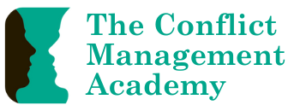Warren Berger, the author of The Book Of Beautiful Questions, describes himself as a “questionologist”. His background as a journalist sparked his interest in questions as a tool for gathering information for a story, but he realised that questioning was also useful for solving problems, being creative and developing connections.
Research has shown that children (particularly those around 4 years of age) ask around 300 questions a day. Not only does the process of asking questions help children learn and develop their thinking, getting answers is inherently rewarding! However, as children get older, they become less enthusiastic about questioning, and a number of factors reinforce the pressures against questioning. Berger explains that what he calls the “five enemies of questioning” are: fear, knowledge, bias, hubris and time. He argues that we need to develop and foster a questioning habit to overcome these enemies, and provides a number of tools to support us to do so.
This book is an in-depth study of questions and their uses. It is not just a book full of beautiful questions (although there are certainly hundreds of valuable questions throughout the book, including a comprehensive list in the index at the end of the book). It is also a book about the value of questioning, and how to get your questioning right in various situations (including for better decision-making, for sparking creativity, to connect with others, and for stronger leadership). As the introduction explains, the book is “about asking thoughtful questions at the right time in order to make the best choices when it matters most”.
Berger points out that “The simplest and most powerful thing that happens when we ask ourselves questions is that it forces us to think”.
Berger has collected questions from a variety of sources, including entrepreneurs, life coaches, kindergarten teachers, cognitive behavioural therapists, chief executives, psychology professors, neuroscientists, counterintelligence agents, novelists, improv performers, a U.S. Marine officer, a hostage negotiator, a risk-management specialist and others. He has also formulated his own questions with collaborative input from others. These questions are included in various checklists throughout the book, categorised by the context or purpose for which they might be useful.
Berger draws on scientific research, popular culture references and his own personal experiences to present an engaging and convincing argument about the value of questioning.
Honestly, I cannot say enough about this book. This is essential reading for anyone who works with people in conflict… and also everyone else!��Seriously, everyone, READ THIS BOOK!

